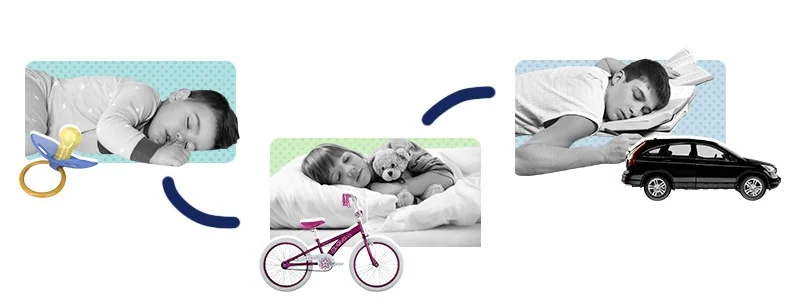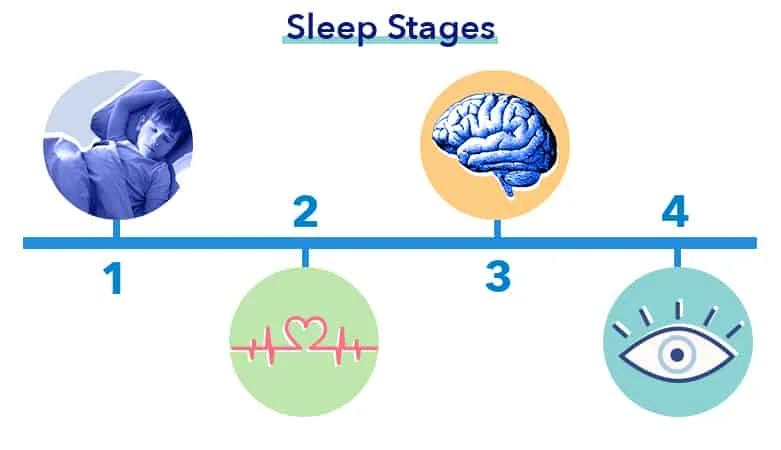Everybody needs sleep to stay healthy. Many people — kids included — think they can get less sleep if they’re busy or would rather be doing something else. But if you don’t sleep enough, your body doesn’t work the way it should.
Research shows that without enough sleep, you’re more likely to catch a cold or flu, feel irritable, or have trouble staying awake in school. And if you make a habit of losing sleep, you can have serious health problems like diabetes and heart disease.
FAQ
Q: How does sleep prevent colds? A: When you sleep, your immune system fights bacteria and viruses so they can’t cause infections in your body.Note: The content on Sleepopolis is meant to be informative in nature, but it shouldn’t take the place of medical advice and supervision from a trained professional. If you feel you may be suffering from any sleep disorder or medical condition, please see your healthcare provider immediately.
Why Is Sleep Important?
After a long day, you usually feel sleepy. You might yawn and have trouble keeping your eyes open. This is your body’s way of telling you it’s time to sleep. If you don’t get enough sleep, you can feel grumpy. You might have trouble sitting still at school and remembering things you need to learn. You need sleep to process memories and the emotions you experience while you’re awake.

To feel good every day with enough energy to have fun and study, you need to get plenty of sleep at night. When you climb into bed and fall asleep, your body recovers from all the things it did while you were awake. Moving around takes a lot of energy and makes your muscles tired. Sleep helps your muscles repair themselves so you can use them the next day.
While you sleep, your body turns the food you eat into nutrients that keep you strong and alert. Sleep also helps your body perform housekeeping by removing dead or damaged cells and clearing toxins from your brain.
Toxin
A toxin is a poison produced by living things such as human beings and animals.
How Much Sleep Do You Need?
Everyone needs a certain amount of sleep to feel good and stay healthy. Your age is part of what determines how much sleep you need. Babies need the most sleep — between fourteen and seventeen hours a day. School-age kids need at least 10 hours of sleep every night, and adults usually need between seven and nine hours of sleep.

Some of us need a little more or a little less sleep than experts suggest. How do you know if you’re getting enough sleep? You feel rested, awake, and energetic during the day, and don’t think very much about wanting to nap. If you feel sleepy, yawn a lot, or have trouble concentrating at school or home, you may need more sleep at night.
The Four Stages of Sleep
As you sleep, your body goes through cycles of four different sleep stages. The first stages of sleep are lighter, and happen when you’re just falling asleep. Your eyes close and your heartbeat slows down. Your breathing becomes regular and you stop being aware of what’s going on around you. After about twenty minutes, you fall into a deeper stage of sleep. During deep sleep, your body repairs and restores itself. Special cells clean out your brain, and hormones help you grow.

During the deep sleep stage, your eyes don’t move and your muscles move only a little bit. It would be hard for someone to wake you up from deep sleep. After deep sleep comes the stage of sleep known as REM, or rapid eye movement. In REM sleep, your heartbeat gets faster, your breathing gets lighter, and your eyes move back and forth behind your eyelids.
Your body goes through sleep cycles all night long. Each cycle lasts about 90 minutes. As the night goes on, the REM sleep stages get longer and the deep sleep stages get shorter.
Your brain is an important part of the sleep cycle. As you enter the REM stage, your brain gets active and you start to dream. Your muscles are paralyzed during REM sleep so you don’t act out your dreams. Your involuntary muscles keep your heart beating and your lungs breathing even though you can’t move the muscles in your arms and legs. As soon as REM sleep ends, your muscles can move again and your eye movements go back to normal.
FAQ
Q: How are muscles paralyzed during REM sleep? A: Two brain chemicals work together to switch off the cells that allow the muscles to move.How To Get a Good Night’s Sleep
To make sure you get a good night’s sleep, try to practice what’s called good sleep hygiene. Good sleep hygiene is a set of habits that can help make sleep easier so you feel rested. To practice good hygiene, try some of these tips:
- Go to bed at the same time every night and wake up at the same time every morning. This helps your body know when it’s time to sleep and when it’s time to be awake
- Get plenty of exercise every day. Exercise helps you stay on a regular sleep schedule and sleep more soundly
- Turn off the television and stay away from phones, video games, and computers for an hour before bedtime. Television and electronics are sources of blue light, which can wake you up the same way sunlight can
- Relax and dim the lights before bed. Your body will know it’s almost time for sleep if you turn the lights down. Opening the curtains to in bright light in the morning sends signals to your brain to wake up and be alert
- Make sure your bedroom is quiet and dark so noise and light don’t wake you up. Keeping your room cool can help you get to sleep faster and stay asleep
Last Word From Sleepopolis
Kids need sleep just like babies and adults do. Getting enough sleep is important to feeling good and having the motivation to do the things you like to do. Sleep affects everything from your emotions to your memory and the strength in your muscles. Making sleep a priority can help you learn in school and have energy left over to play sports and spend time with your friends.
To get a good night’s sleep, follow the basic rules of sleep hygiene. Turn off your phone, TV, and computer at least an hour before you go to bed, and keep your bedroom dark and quiet. Most of all, if you feel sleepy during the day, try going to bed earlier for a few weeks. Even an extra thirty minutes of sleep can help you feel happier, stronger, and healthier.

























